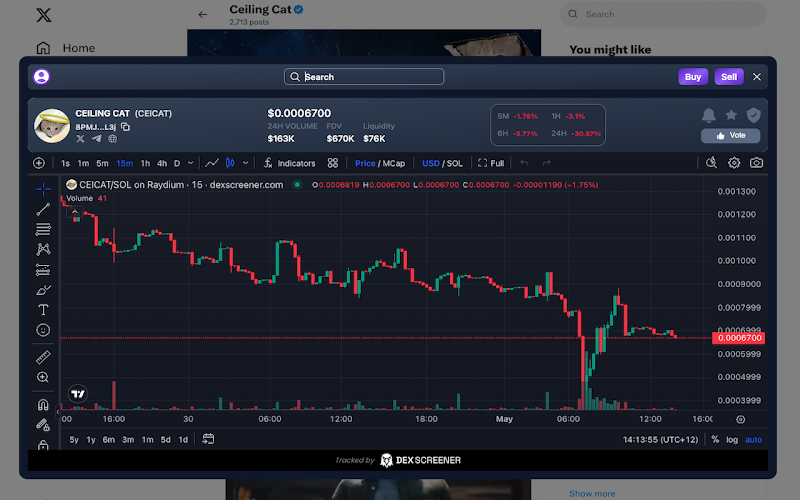
The Rise of Crypto Copilot: A Stealthy Solana Scourge
A new malicious Google Chrome extension, dubbed Crypto Copilot, has been discovered siphoning funds from Solana (SOL) traders. This deceptive extension, which masquerades as a convenience tool for trading directly from Twitter, injects an extra, hidden transfer into every swap executed on the Solana blockchain. Cybersecurity firm Socket first reported on the operation, highlighting the extension’s subtle but effective attack vector.

How Crypto Copilot Operates: A Deep Dive
Unlike more blatant wallet-draining malware, Crypto Copilot employs a more nuanced approach. It leverages the decentralized exchange Raydium to perform swaps on behalf of the user. However, alongside the intended swap instruction, the extension secretly includes a second instruction that diverts a small amount of SOL – a minimum of 0.0013 SOL or 0.05% of the trade – to the attacker’s wallet. The user interface cleverly obscures this additional transfer, making it difficult for users to detect the malicious activity. The wallet confirmation screens offer only a summarized view of the transaction, failing to surface the individual instructions that execute atomically on-chain. This means the user signs a seemingly single swap transaction, unaware that it’s simultaneously sending funds to the attacker.
The Long-Lived Threat and Limited Impact (So Far)
Despite being active since June 18, 2024, the extension appears to have a relatively small user base, currently reported to be around 15 users. Socket has submitted a takedown request to the Chrome Web Store security team. However, the extension’s longevity suggests the attackers are persistent and potentially refining their techniques.
The Broader Implications: A Persistent Threat Landscape
This incident underscores the ongoing risks associated with browser extensions and the broader cryptocurrency ecosystem. The Chrome Web Store, with its massive user base, remains a prime target for crypto-focused scams. Users should exercise extreme caution when installing extensions, especially those promising convenience or offering features that seem too good to be true. Regularly reviewing transaction details, even when using trusted platforms, can help users identify and avoid malicious activity.
Lessons Learned and Best Practices
- Verify Extension Sources: Only install extensions from reputable developers and carefully review their permissions.
- Inspect Transaction Details: Always examine the specific instructions within a transaction before approving it.
- Use Hardware Wallets: For added security, consider using a hardware wallet, which can help prevent unauthorized transactions.
- Stay Informed: Keep up-to-date with the latest security threats and scam tactics within the cryptocurrency space.
This incident is a reminder that constant vigilance is crucial in the dynamic and sometimes treacherous world of cryptocurrency trading.
This situation highlights the importance of staying informed and vigilant in the ever-evolving landscape of cryptocurrency.


